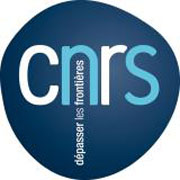 The National Center for Scientific Research (www.cnrs.fr/index.php) is the major French government-funded agency for fundamental research. CNRS research Units are located throughout France with close connexions with Universities and other Research and Education Institutions.
The National Center for Scientific Research (www.cnrs.fr/index.php) is the major French government-funded agency for fundamental research. CNRS research Units are located throughout France with close connexions with Universities and other Research and Education Institutions.
CNRS Unit 7208 BOREA «Biology of Aquatic Organisms and Ecosystems”, located at the National Museum of Natural History (MNHN), Paris, FR has a long tradition in eel research. It has all equipments for biochemistry, histology, cell culture, molecular biology, as well as aquarium facilities for eel maintenance. CNRS Unit 2197 «Development, Evolution and Plasticity of Nervous System», Gif-sur-Yvette, FR has a leading expertise in comparative and evolutionary neurobiology. CNRS Unit 6175 «Reproductive Physiology», Nouzilly, FR has a leading expertise in basic and applied reproductive endocrinology.
Tasks inside the project
CNRS team will develop new tools, knowledge and strategies for eel reproduction. CNRS team will lead WP4 and participate to the other WP’s.
Relevant experience regarding major tasks
CNRS staff combines expertises required for developing new tools (molecular tools, hormones assays, cell culture systems) and raising innovative basic and applied knowledge for eel reproductive endocrinology.
Project participants
Dr. Sylvie Dufour, leader of P4 (CNRS), Director of CNRS Unit 7208, has an international expertise in comparative neuroendocrinology and eel reproductive endocrinology. She has participated in the European project EELREP and has leaded various European (Marie Curie, Leonardo da Vinci, Erasmus) and bilateral projects (France-USA: CNRS-NSF; France-Taiwan: CNRS-NSC; France Norway: Aurora; France-UK: Alliance).
Mrs Sylvie Baloche, Research technician at CNRS Unit 7208 has a long term expertise in eel physiology, cell culture, hormone immunoassays and molecular biology.
Dr. Yves Combarnous, Research Director at CNRS Unit 6175, past head of the INRA-CNRS Laboratory of Reproductive Physiology in Nouzilly, is an internationally recognized specialist of glycoprotein hormones structure-function relationships. He has previously participated to the Food & Fecundity European contract on endocrine disruptors of reproductive function. He is currently collaborating with Dr S. Dufour on eel recombinant hormones. Dr Danièle Klett, Research engineer at CNRS Unit 6175 has excellent expertise in gonadotropins carbohydrate biochemistry and whole animal imaging by 123I tomography.
Dr. Catherine Pasqualini, Research scientist at CNRS Unit 2197, has a strong expertise in neuroendocrinology and dopaminergic systems, including studies in the eel through her long-term cooperation with Dr S. Dufour.
Additional contributions: M. Sc. Jérémy Pasquier, CNRS Unit 7208, recipient of a PhD fellowship (10/2009-10/2012) from the Ministry of Research and Education will participate in the PROEEL project. Dr X., Post-Doc scientist will be appointed on the PRO-EEL project for 2 years.
Relevant publications
Vidal B., Pasqualini C., Le Belle N., Holland M.C.H., Sbaihi M., Vernier P., Zohar Y., Dufour S. (2004). Dopamine inhibits luteinising hormone synthesis and release in the juvenile European eel: a neuroendocrine lock for the onset of puberty. Biology of Reproduction, 71:1491-1500.
Aroua S., Schmitz M., Baloche S., Vidal B., Rousseau K., Dufour S. (2005) -. Endocrine evidence that silvering, a secondary metamorphosis in the eel, is a pubertal rather than a metamorphic event. Neuroendocrinology, 82: 221-232
Weltzien F-A, Pasqualini C., Sébert M.E., Vidal B., Le Belle N., Kah O., Vernier P., Dufour S. (2006) - Androgen-specific stimulation of brain dopaminergic systems in the female eel Endocrinology, 147: 2964-2973.
Legardinier S, Poirier Jc, Klett D, Combarnous Y, Cahoreau C. (2008) Stability and biological activities of heterodimeric and single-chain equine LH/chorionic gonadotropin variants. Journal of Molecular Endocrinolology. 40:185-198.
Sebert M.E., Legros C., Weltzien F.-A, Malpaux B., Chemineau P., Dufour S. (2008) – Melatonin activates brain dopaminergic systems with an inhibitory impact on reproductive function. Journal of Neuroendocrinology, 20: 917-929.